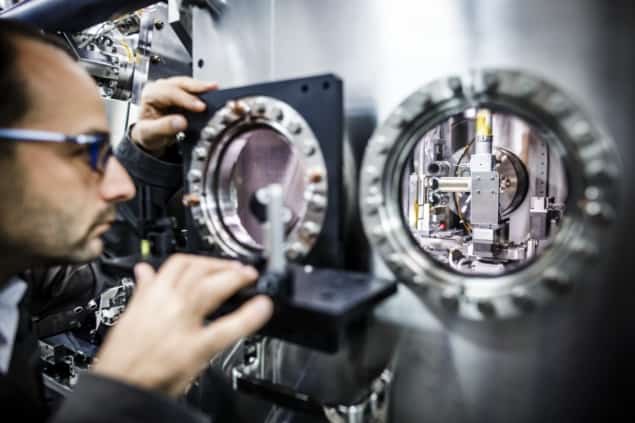
The Helmholtz Association, Germany’s largest research organization, needs to increase the diversity of its workforce, including the number of senior female researchers. That is according to an evaluation of the organization conducted by around 600 external scientists from 27 countries. The review will now be used for a major evaluation of the organization next year that will set the association’s research priorities until 2027.
We really need to increase diversity to bring in other ideas and make progress
Sören Wiesenfeldt
With an annual budget of more than €4.5bn, the Helmholtz Association employs around 40,000 people and brings together 18 scientific research centres – including the DESY accelerator centre near Hamburg and the Research Centre Jülich. While the Helmholtz Association has previously conducted regular assessments of its individual centres, Sören Wiesenfeldt, head of research at the Helmholtz Association, told Physics World that this is the first time it has assessed its overall scientific performance. As well as looking at individual centres, the assessment examined the performance of research programmes that often involve multiple research centres.
Need to improve
The report finds that the Helmholtz Association conducts high-level, interdisciplinary research with the 18 centres well positioned in their respective research fields and that they collaborate well together. The association does, however, face challenges. The organization needs to strengthen its data science research and use tools such as artificial intelligence to better manage the huge volumes of data that are generated at Helmholtz centres. In particular, there is a need to improve data sharing among centres so that results can be used across different organizations and research programmes.
According to Wiesenfeldt, the reviewers found that the Helmholtz centres are “very German” – around 6000 workers are foreign – and that the organization’s “culture for diversity has to improve”. The evaluation discovered that while there is almost gender parity at PhD level, only 19% of full professorships are held by women. Wiesenfeldt adds that the association was aware of the gender gap and it is funding several initiatives to increase female researchers at all levels with an overall aim to boost the proportion of female professors to 24% by 2020. “We really need to increase diversity to bring in other ideas and make progress,” says Wiesenfeldt.








 User Center
User Center My Training Class
My Training Class Feedback
Feedback












Comments
Something to say?
Log in or Sign up for free